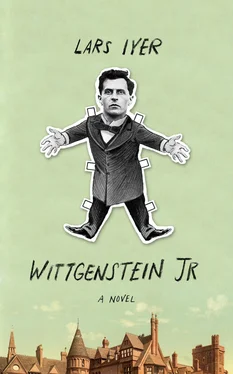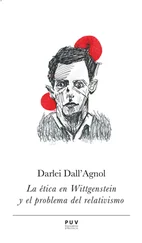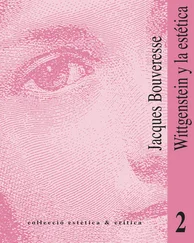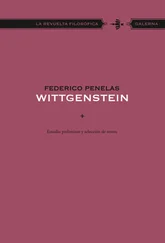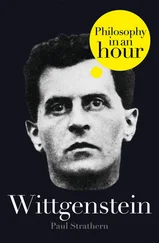His brother wrote of the logical pandemonium in his final notebook. Of the logical calamity . He wrote of the shipwreck of logic. He wrote of extinguished stars. Of ghost galaxies, long burnt out. He wrote of dark matter. Dark energy. He wrote of the end of the world, and of the endless end of the world. He wrote of living death and dying life …
Cindie’s . Saturday night. A dance-off between Mulberry and Doyle. Criteria: flair, originality, acrobatics.
Doyle comes on, high-fiving his audience before ambitiously referencing the entire history of dance. Witch-doctor trance. Warriors’ huddle. Doyle en pointe , holding his pose. Doyle in the ballroom, sweeping round the floor. A burst of tap. The Charleston. Swing . Then the Lindy Hop . And, from left field, Brazilian capoeira …
Chakrabarti sees some Indian classical moves in Doyle’s repertoire; Okulu, some Nigerian Alanta. Doyle locks and pops, waves and vogues and robots. Then, a scissor leap, before a final John Travolta.
A postmodern performance, we decide. Eclecticism! Hybridism! Everything at once! Refreshing — but also innovating . Alexander Kirwin gives it a nine; Benedict Kirwin, an eight; Titmuss, a seven. Total: twenty-four.
Mulberry’s turn. He freezes for a full minute, as if in bullet-time. Then the full moonwalk , up and down the floor, white towelling socks gleaming. Then, comedy —Mulberry claws his hands and pretends to crawl across the dance floor as up a mountain slope; Mulberry catches a hooked finger in his mouth, hauling himself towards the DJ, like a fish struggling on the line. Then, tragedy —Mulberry pulls a toreador’s cloak over his narrow frame, and dances flamenco , full of duende . Then he slows down, holding poses, with the hyper-control of Butoh . Mulberry is Agony, Mulberry is Suffering. Mulberry is Hurt, Mulberry is Dying, Mulberry is Death … Mulberry dances the End of Dance . Then Mulberry dances the Posthumous Dance .
What pathos! What emotion! Innocence lost. Perhaps innocence destroyed! Alexander Kirwin gives it an eight, Benedict Kirwin gives it an eight, Titmuss gives it an eight. Total: twenty-four — a dead heat. The dance-off must go to a dance-off.
Tension: Mulberry and Doyle facing each other, each daring the other to begin — two slim sumo wrestlers, half squatting, hands on thighs.
Release: the paso doble , Mulberry as the matador, and Doyle, by turns, the matador’s cape, the matador’s shadow, the bull itself; the Carimbó , Doyle spinning Mulberry like a top and then, old-style, in three-quarter time, in tiny, delicate steps, Mulberry leading; then, grinding , doggy-style, Doyle behind Mulberry, Mulberry behind Doyle; then the closing scene of Dirty Dancing , as if they rehearsed it for weeks, Mulberry/Johnny holding an outstretched Doyle/Baby above his head. What a climax! What a resolution!
The judges are overjoyed. Alexander Kirwin: ten! Benedict Kirwin: ten! Titmuss: ten! Mulberry and Doyle lead everyone in a conga, snaking from the dance floor out onto the streets …
In the weeks after his brother’s suicide, Wittgenstein read his brother’s notebooks in his Cambridge rooms.
Sometimes, he opened the notebooks reverently, as though they were the holiest of texts. He followed the strict sequence of proofs in his brother’s meticulous handwriting. He marvelled at the boldness of his brother’s formulae, his new logical language. At the new logical operators his brother used.
At other times, he opened the notebooks at random, alighting on this proof, or on that, or puzzling over one of his brother’s occasional remarks. ( Truth is indivisible, hence it cannot recognise itself. The only way to truth is through one’s own annihilation. Torment is the beginning of religion. The will to think is the will to pray … )
He slept with his brother’s notebooks beside him on his bed, Wittgenstein says. He had confused dreams, logical dreams, of drawing his brother’s reflections into a systematic unity. Of organising his brother’s writings into a complete and definitive form.
His brother’s notebooks were eccentric, Wittgenstein says. Some might say mad . The calm handwriting of the first notebook (tiny, neat, controlled, upright) gave way to the wilder handwriting of the second notebook (larger, florid, looped, forwards-leaning), and to the deranged handwriting of the third notebook (words obscure, often indecipherable, written as though in a kind of code, as though his brother wanted to hide what he wrote, as though he wanted to conceal it, even from himself).
Carefully numbered points, an architectonic structure for his logical project, gave way to scraps, fragments. To shifting sands. Meticulous proofs, scrupulous formulae, gave way to remarks about his project. About the impossibility of his project. About the impossibility of logic . About the impossibility of philosophy .
There were times when he deliberately neglected his brother’s notebooks, Wittgenstein says. Their demand was too great. Their challenge, too frightening. He rested mugs of coffee on their covers. He left them at the bottom of his rucksack, squashed by supermarket groceries, pastry grease staining their pages.
There were times when he wanted to off-load his brother’s notebooks, Wittgenstein says. To have done with his responsibilities. He thought of placing them in a Jiffy bag and posting them anonymously to the Bodleian. He thought of leaving them on the doorstep of the British Library. He thought of sending the notebooks to the Oxford philosophy department. To Cambridge lecturers in logic. But who would understand them?
Only one who has had exactly the same thoughts that I have had can understand me , his brother wrote in his first notebook. Only one who has suffered thought, who has suffered his way to thought. Only one, like me, who went to logic on his hands and knees .
I have come to Norway to suffer for logic, and perhaps die for logic, or at the very least go mad for logic , his brother wrote in his second notebook. Logic will no doubt send me mad. But it will be a sublime madness. A sane madness .
Clarity or death. No — clarity is death , his brother wrote in his third notebook. I am dead. I am no longer human. Only the dead can read these pages .
News! Professor Warrington-Smythe, head of philosophy at Oxford, is coming to give a paper. Will Wittgenstein attend, we wonder, to face down the famous philosopher?
The ancient debating chamber, on the main campus. Warrington-Smythe, with a group of Oxford students. And the big guns of Cambridge: Professor Crookshank, Ellison Chair in Logic, with a band of his students. Professor Knowles, McCarthy Chair in Political Philosophy, with a band of his students … Are all of the Cambridge philosophers here?
Bell, in sandals, whispering in James’s ear. Powell, all tweed, giggling with Harding. Raynor-Scobey, eyes closed as she listens. Twelvetrees, furiously taking notes. Clutterbuck, folding an origami swan. Turner-Whitford, his chair tilted back, feet resting on the desk in front of him. Scotswood, clicking his pen, looking fierce, ready for battle …
Wittgenstein, unobtrusive in his beltless mackintosh, seated by a window at the back of the room. What has brought him here, we wonder, he who loathes all Cambridge philosophy, and, we suppose, all Oxford philosophy? Why has he come, who doesn’t believe in Oxbridge philosophy ?
Warrington-Smythe blows his nose and coughs loudly. His students also cough, and also blow their noses. Crookshank rubs his bald head back and forth with both hands. Crookshank’s students rub their thick hair back and forth with both hands, making a curiously leonine effect. Knowles surreptitiously fingers his nostrils. Knowles’s students surreptitiously finger their nostrils.
Читать дальше
